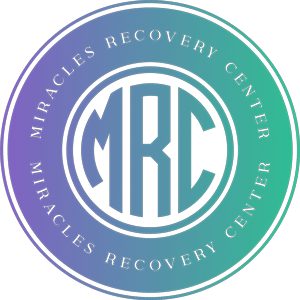Integrated recovery is a holistic approach to healing that seeks to address the unique needs of each individual. While it’s clear that one-size-fits-all solutions are not always effective, let’s explore how integrated recovery can be tailored to fit personal requirements and circumstances.
Understanding Integrated Recovery
Integrated recovery combines various therapeutic methods and wellness practices to form a cohesive treatment plan. It acknowledges the multifaceted nature of recovery, addressing physical, emotional, and psychological aspects Learn more about integrated recovery. This holistic approach often involves numerous actors, each contributing to the individual’s recovery process.
The approach known as integrated recovery is particularly beneficial for those with long-term health issues, including severe mental illnesses. It is designed to ensure adherence to medication and treatment, while also reducing symptoms and improving functionality Recovery-oriented services. Such service models often emphasize working on a personal level to restore well-being.
Moreover, an integrated recovery model prioritizes both clinical and personal recovery. The clinical recovery focuses on symptom remission, while the personal recovery emphasizes individual goals and a fulfilling life, all of which are crucial in the personalization of recovery services.
Assessing Individual Needs
Each person’s journey in recovery is unique. By evaluating personal goals, strengths, and challenges, a tailored recovery plan can be developed to effectively address these components Explore the right path for recovery.
Identifying individual needs starts with comprehensive assessments that include medical evaluations and lifestyle analyses. This assessment process is essential in designing interventions that align with an individual’s characteristics, ensuring they receive the assistance they require.
Such thorough assessments allow therapists and healthcare providers to pinpoint precise areas of need, facilitating the development of a recovery plan that addresses both apparent and underlying issues. Tailored recovery plans increase the probability of sustainable progress and overall health improvement.
Personalizing Treatment Approaches
Customization involves selecting the right combination of therapies and interventions that resonate with the individual’s preferences and lifestyle. Such personalization helps in improving engagement and efficacy Customized recovery plans.
In tailoring treatment, numerous therapeutic options are available, including cognitive behavioral therapies, mindfulness exercises, and physical health activities. By identifying what works best for the individual, the recovery process becomes not only a clinical pursuit but a personal journey of growth.
Personalized care plans extend beyond clinical aspects to include social and community integration, which are pivotal for individuals dealing with substance use or mental health recovery needs Importance of personalized care.
Incorporating Support Systems
Support from family, friends, and professionals is integral in recovery. Encouraging involvement from these groups can be tailored to meet the individual’s comfort level and needs. Customizing your support network plays a significant role in personalizing recovery approaches.
An effective support system is responsive to the individual’s circumstances and preferences, enabling them to build a network that provides strength and encouragement. This could involve regular check-ins with a counselor or participating in community-based support groups.
Moreover, the emotional backing from loved ones can reinforce the individual’s motivation to persist with their recovery plan. It involves identifying potential supporters and developing a strategy that maximizes each supporter’s contribution to the recovery process.
Evaluating and Adapting the Plan
Continual assessment of progress allows for modifications to the recovery plan as needed. Flexibility ensures that the plan remains relevant and effective over time. Regular updates can keep the recovery journey aligned with evolving personal needs.
Feedback loops are vital in an integrated recovery plan. Regular evaluations of the recovery process should incorporate both subjective experiences and objective measurements of progress, ensuring that any necessary adjustments are practical and beneficial.
Adaptation might involve changing therapeutic methods, introducing new support systems, or recalibrating personal goals. Personalized feedback helps shape these changes constructively, enhancing both short-term and long-term recovery outcomes.
The Flexibility of Integrated Recovery
Integrated recovery offers the flexibility and comprehensiveness needed to address individual needs effectively. By understanding personal challenges, creating a supportive environment, and employing adaptive strategies, it is possible to craft a recovery journey that is both unique and effective. Through such tailored approaches, individuals can better navigate their recovery process while ensuring personal growth and healing.





